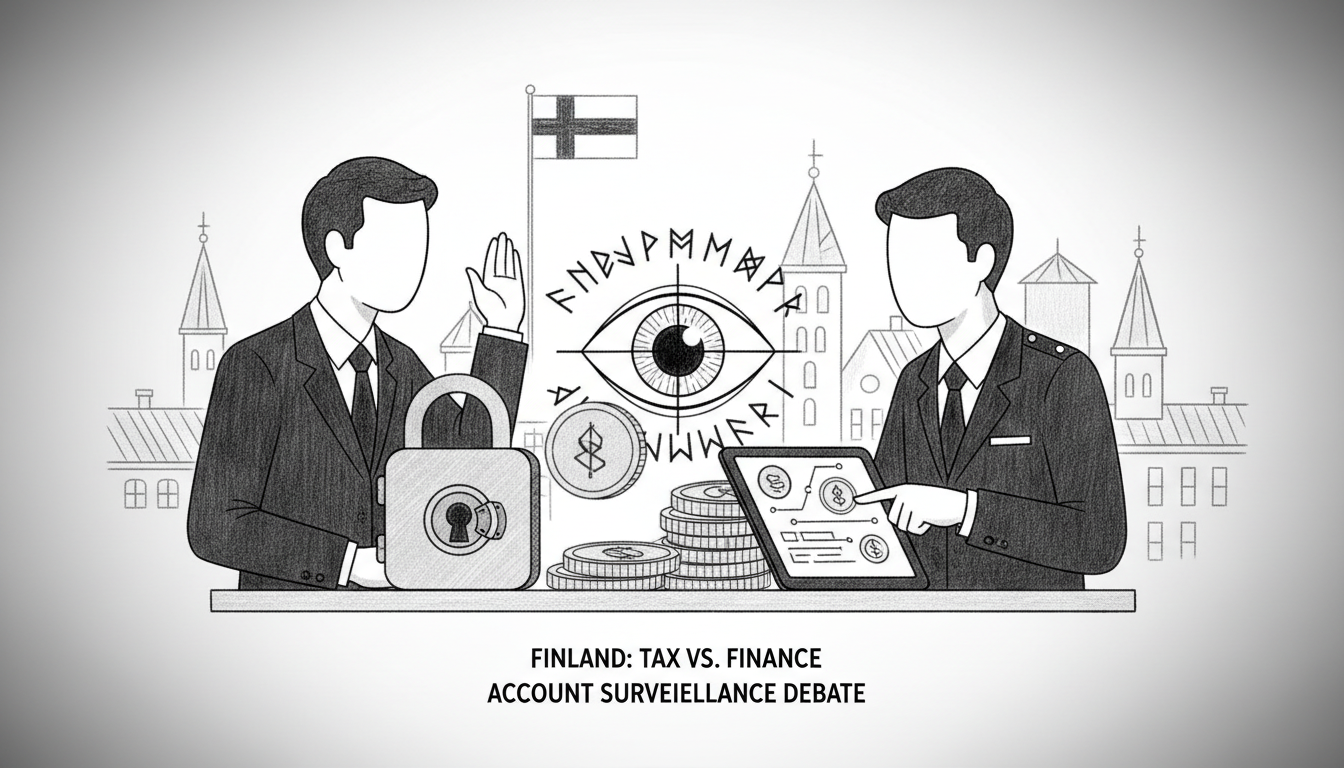A heated debate has erupted in Finland over proposed changes to tax monitoring laws. The financial industry claims new powers would allow unconstitutional mass surveillance of citizens' bank accounts. Tax officials strongly deny these allegations.
The government wants to amend the Tax Procedure Act to close tax loopholes. Officials estimate Finland loses about 100 million euros annually to undeclared income. This includes cross-border trade, cryptocurrency transactions, platform economy earnings, and foreign investments.
Finance industry representatives argue the proposal violates constitutional rights and EU data protection rules. They compare it to police listening to all phone calls without specific suspicions.
Tax Administration Director Marko Myllyniemi calls this comparison completely unfounded. He says the debate has surprised officials at the Tax Administration. These bank comparison checks became possible back in 2011. No new rights are being created now.
Myllyniemi explains why broad data collection is sometimes necessary. When investigating cryptocurrency sales, they need information from all sellers of that particular cryptocurrency. Then they compare this data with tax declarations.
If significant discrepancies appear, they send clarification requests to those individuals. Data collected from other people gets destroyed immediately.
The Supreme Administrative Court ruled in 2020 that the Tax Authority acted illegally in a 2013 case. Back then, they requested bank information about all customers during a specific period. Myllyniemi states they stopped making such requests years before that court decision.
This situation highlights the constant tension between tax collection efficiency and privacy protection. Finland has strong constitutional privacy protections. Yet tax authorities need tools to combat evolving financial evasion methods.
The proposed law changes aim specifically at gray economy prevention. Cryptocurrency transactions and digital platform earnings present new challenges for tax collection. Traditional monitoring methods struggle with these modern financial activities.
International readers should understand Finland's context. The country has high tax compliance historically. But new financial technologies create gaps in the system. The government wants to close these gaps while maintaining public trust.
The bill now awaits parliamentary processing. It needs a statement from the Constitutional Law Committee. The law is scheduled to take effect at the beginning of next year.
This debate reflects broader European discussions about privacy versus security. Many countries face similar challenges with digital finance and tax collection. Finland's solution could influence other Nordic nations facing comparable issues.
What happens next depends on parliamentary review. The Constitutional Law Committee will examine whether the proposal aligns with fundamental rights. Their assessment could lead to modifications before final approval.
The outcome matters for all Finnish residents and international citizens with Finnish financial connections. It could set precedents for how democracies balance privacy rights with tax enforcement in the digital age.

